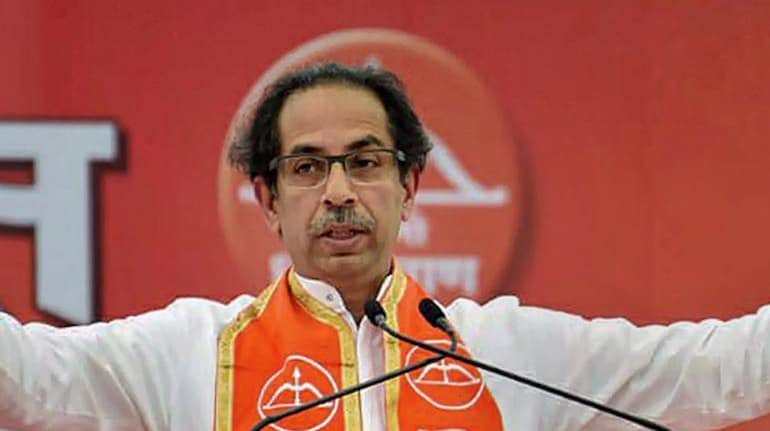



On November 28, the Uddhav Thackeray-led Maha Vikas Aghadi government completed one year in office. The past one year has been extremely eventful for the three-party government: right from the circumstances which led to the Shiv Sena-National Congress Party-Congress alliance to the continuous threat from the Bharatiya Janata Party (BJP), to the latest and ongoing COVID-19 threat.
Thackeray is someone who should never have been chief minister at all — by rights as well as by electoral numbers. Soon after the October 2019 assembly polls, he pulled off an audacious act by digging in his heels and declaring that the BJP honour its commitment of giving the Shiv Sena the chief minister’s post and a better power-sharing agreement, or the Shiv Sena would walk out of the National Democratic Alliance (NDA). When the BJP refused to consider that demand, Thackeray took a step that was set to change political equations forever.
By everybody's reckoning an alliance between a saffron (Shiv Sena) and fiercely secular (Congress) party with a third ambivalent amphibian which could both swim in saffron and fly the secular flag (NCP) should never have worked. They were expected to collapse under the weight of their contradictions within months, if not weeks.
But the fact that they have ambled along by and large peacefully is more a credit to Thackeray and his cataclysmic shifting of gears than anything to do with either the Congress-NCP or the lure of power. For within days of taking oath as chief minister, Thackeray said in the assembly that his party had made a huge mistake in previous years by mixing religion with politics.
For the Shiv Sena that practised a more intimidating mix of religion and politics than the BJP, it was a momentous shift. Thackeray's firm conviction that his party needed to find a new port of call accomplished this shift smoothly. This shift also reassured the Congress and calmed the doubts of leaders who had resisted the alliance earlier.
Thackeray also displayed a great deal of political maturity by visiting Ayodhya on March 7 on completing 100 days in power, and in the process blunting the BJP charge that the Shiv Sena was no longer committed to Hinduism. The BJP, especially state-level leaders led by former Chief Minister Devendra Fadnavis, has tried to trip him up every step of the way over the past year.
Two particular incidents come to mind — the attempt to deny Thackeray an entry into the assembly through the legislative council in May, and lately a contretemps between Thackeray and the Maharashtra Governor who called his commitment to Hinduism into question because the CM was not allowing the reopening of temples (amid other places of worship) in order to contain the spread of the virus.
However, having already redefined his party's commitment to Hinduism as a pluralistic nationalism, Thackeray neatly managed to sidestep any consequences of that allegation and has unceasingly grown more combative against his detractors, mostly from the BJP.
Another feature that has been seen over the past one year is the repeated attempts by the opposition BJP to associate Uddhav Thackeray and/or his son and minister Aaditya Thackeray in some scam or allegation to bring down the government. They have not refrained from going personal calling Aaditya Thackeray and his association with various Bollywood personalities into question. Insinuations were made about his personal proclivities as well as alleged involvement in the death of actor Sushant Singh Rajput. No such allegation has stuck so far.
Though the BJP has not been able to conclusively prove any of the allegations levelled against the Thackerays so far, at regular intervals its leaders express confidence in bringing down the state government. Unlike what it has achieved in states such as Karnataka and Madhya Pradesh, the BJP has not been able to woo a legislator from the MVA. This is because two of the three MVA parties have a strong leadership. The Congress, with a very weak local leadership, is simply too grateful to be in power after being the weakest among the major parties in the state after the assembly elections in 2019. Another strength for the coalition is the presence of NCP chief Sharad Pawar who is a formidable opponent for the BJP.
Given this, the BJP could accuse Uddhav Thackeray of the way the state government has tackled the COVID-19 crisis. But here the fact is that most big states have not done exceedingly better to offer an example which can be lauded.
Uddhav Thackeray continues to exuberate confidence and his demeanour and poise do not have the trepidations of a first-time Chief Minister. His detractors are increasingly getting frustrated as Thackeray either ignores them, or finds constitutional means to tackle obstacles. For example, when the Governor denied the nomination route for the legislative council, he persuaded Prime Minister Narendra Modi to have the election commission hold elections to the council.
For now, it seems Thackeray is comfortably placed to run the state, with no foreseeable trouble, except the ritualistic objections by state BJP leaders.
Sujata Anandan is a senior journalist and author. Views are personal.
Discover the latest Business News, Sensex, and Nifty updates. Obtain Personal Finance insights, tax queries, and expert opinions on Moneycontrol or download the Moneycontrol App to stay updated!
Find the best of Al News in one place, specially curated for you every weekend.
Stay on top of the latest tech trends and biggest startup news.